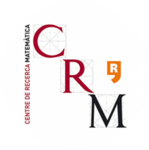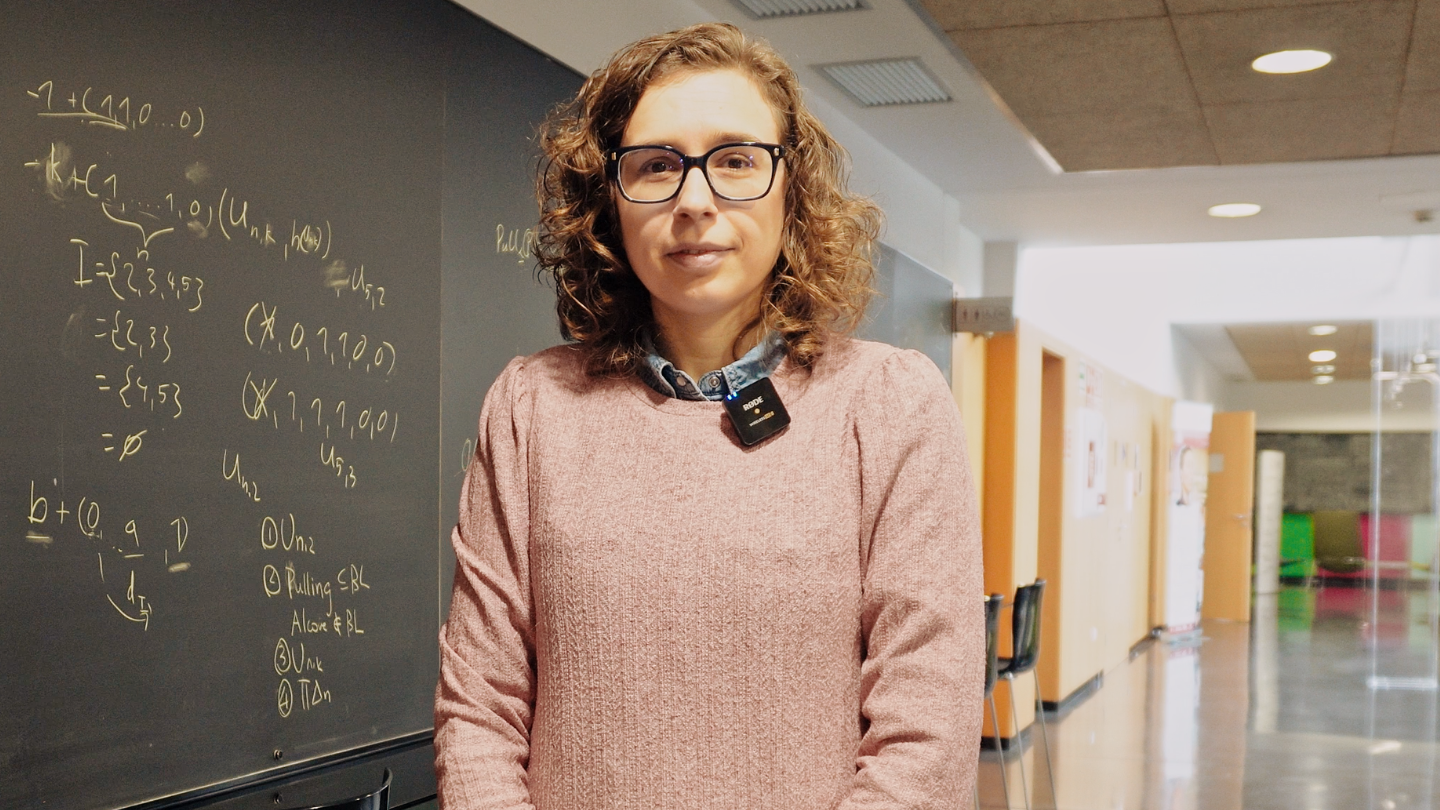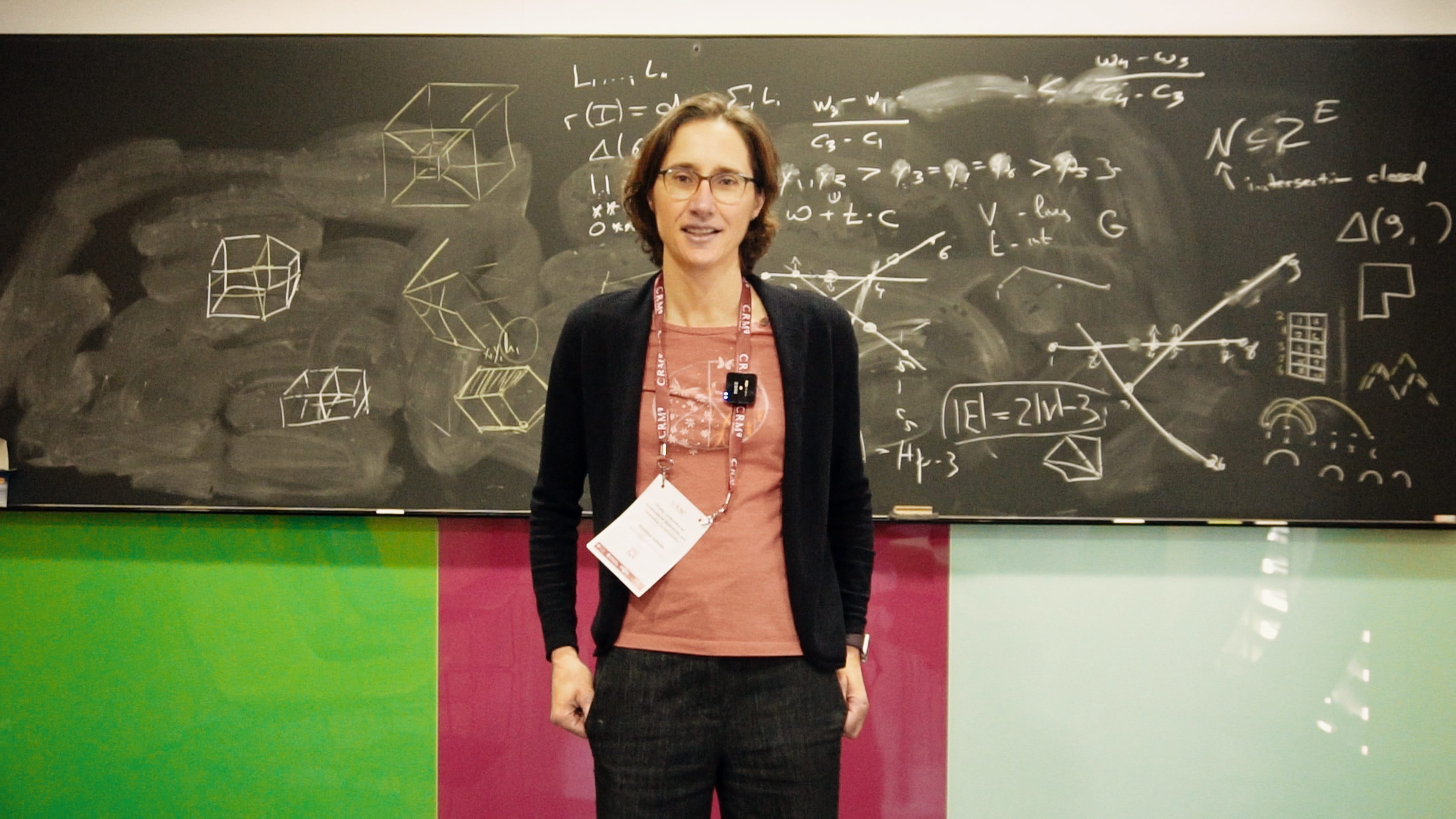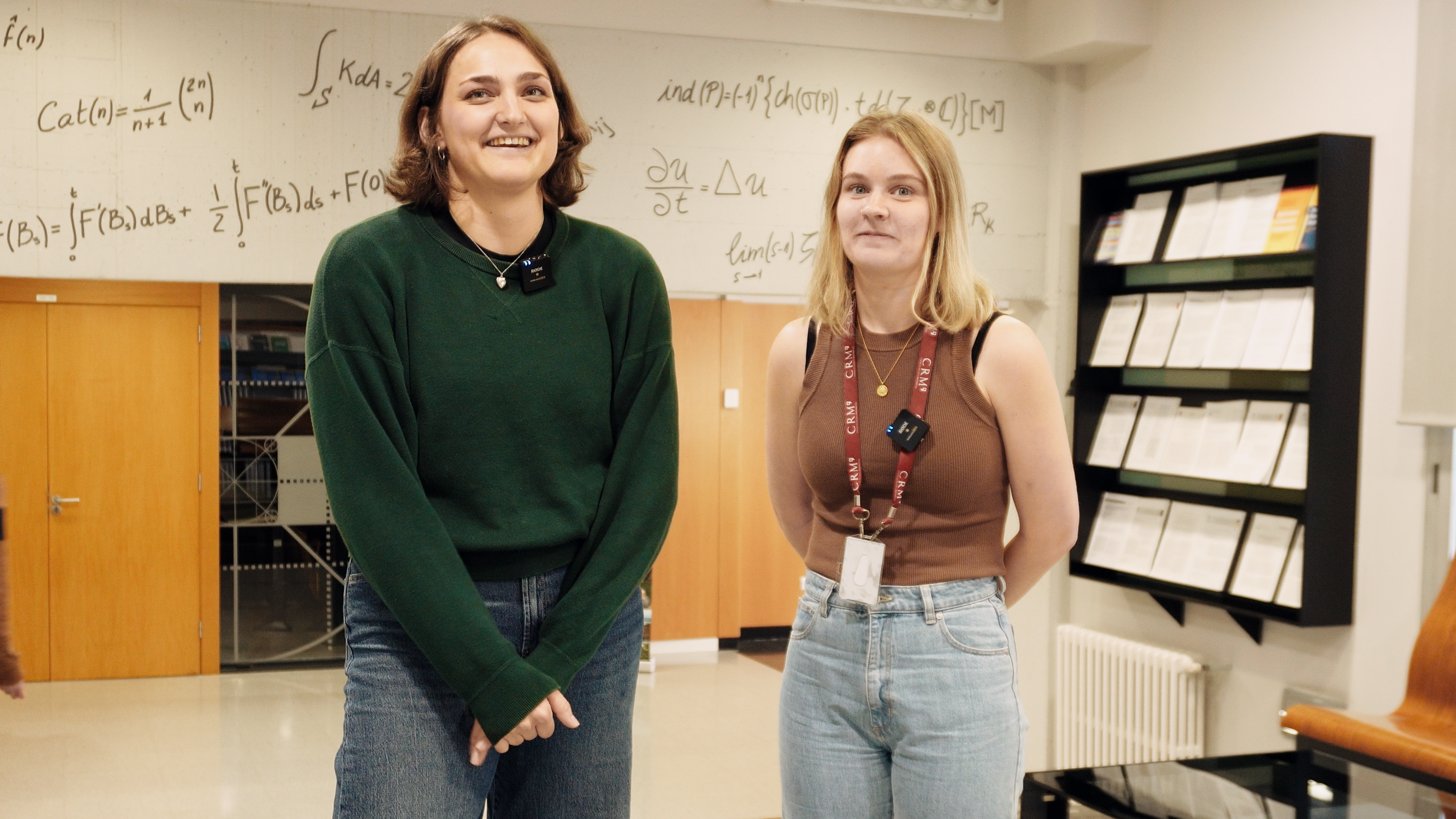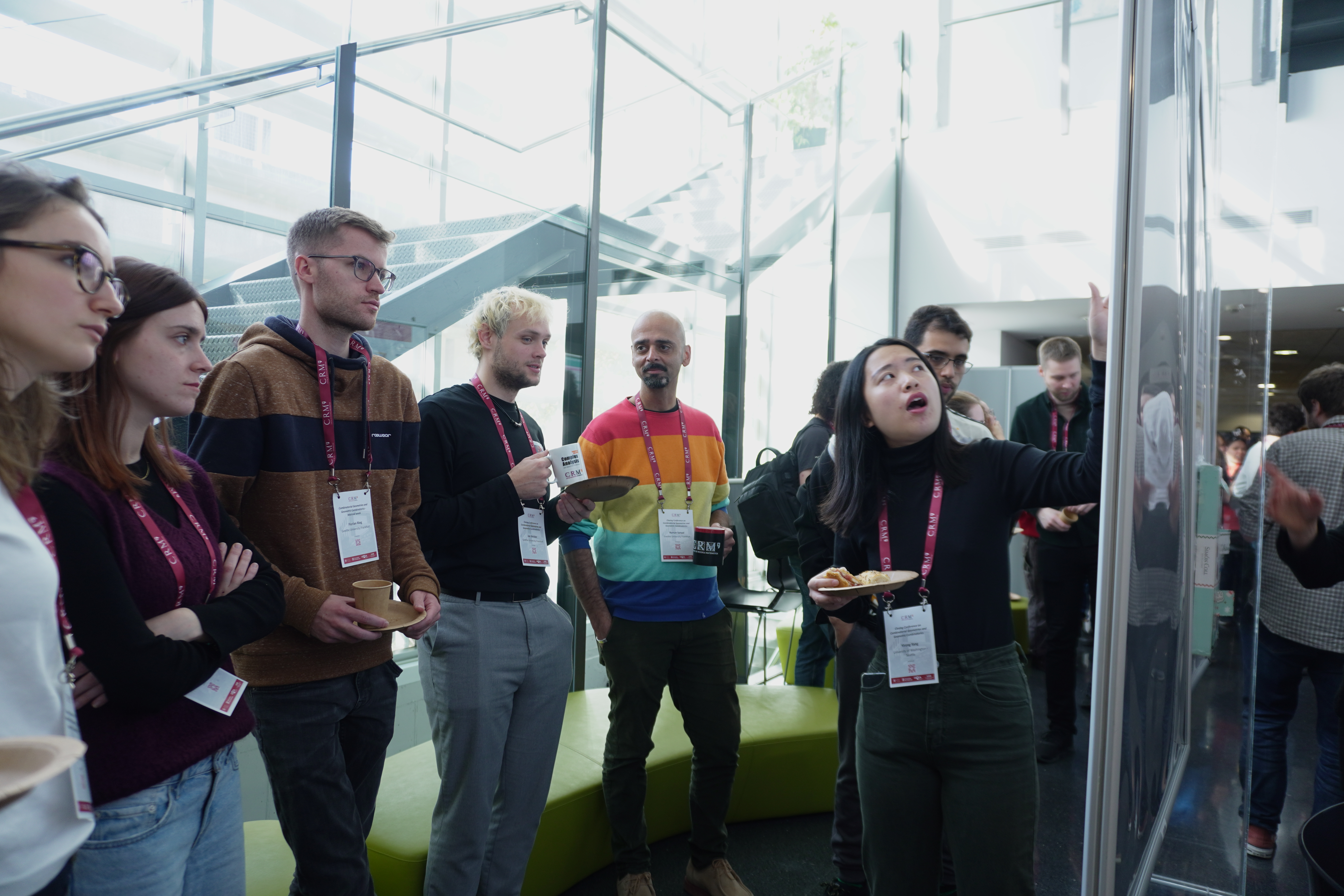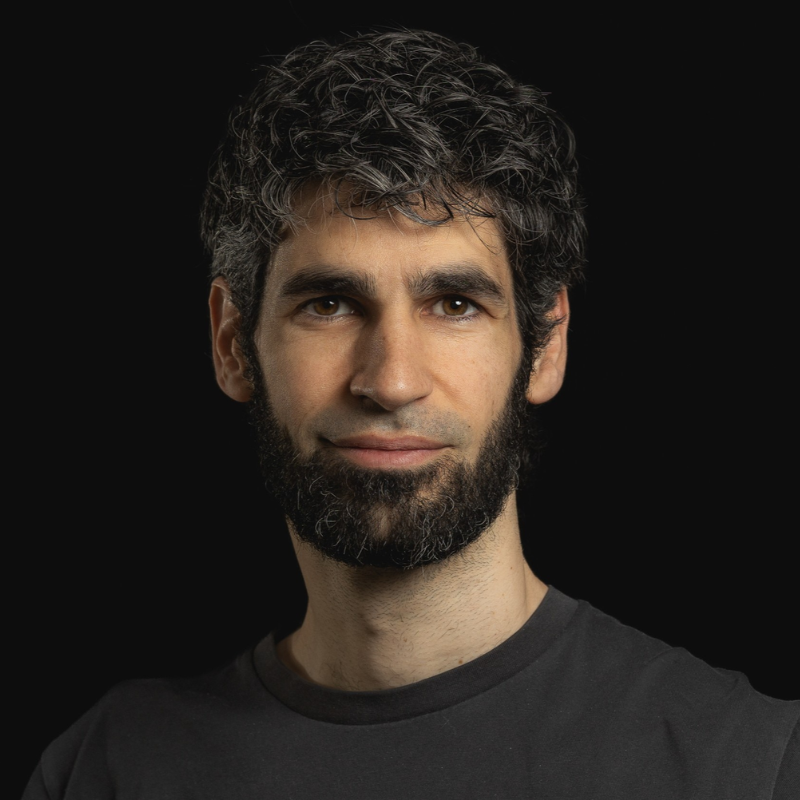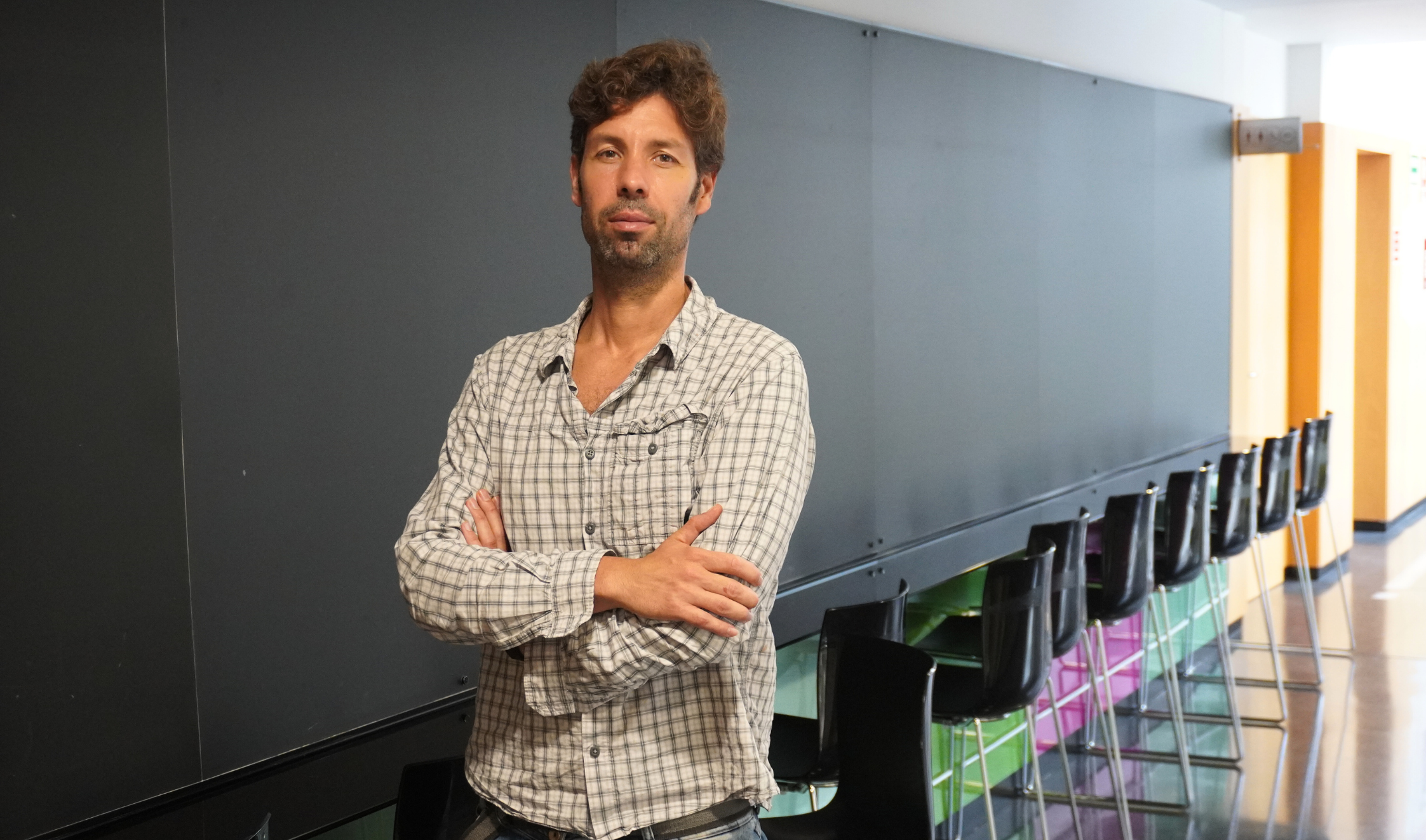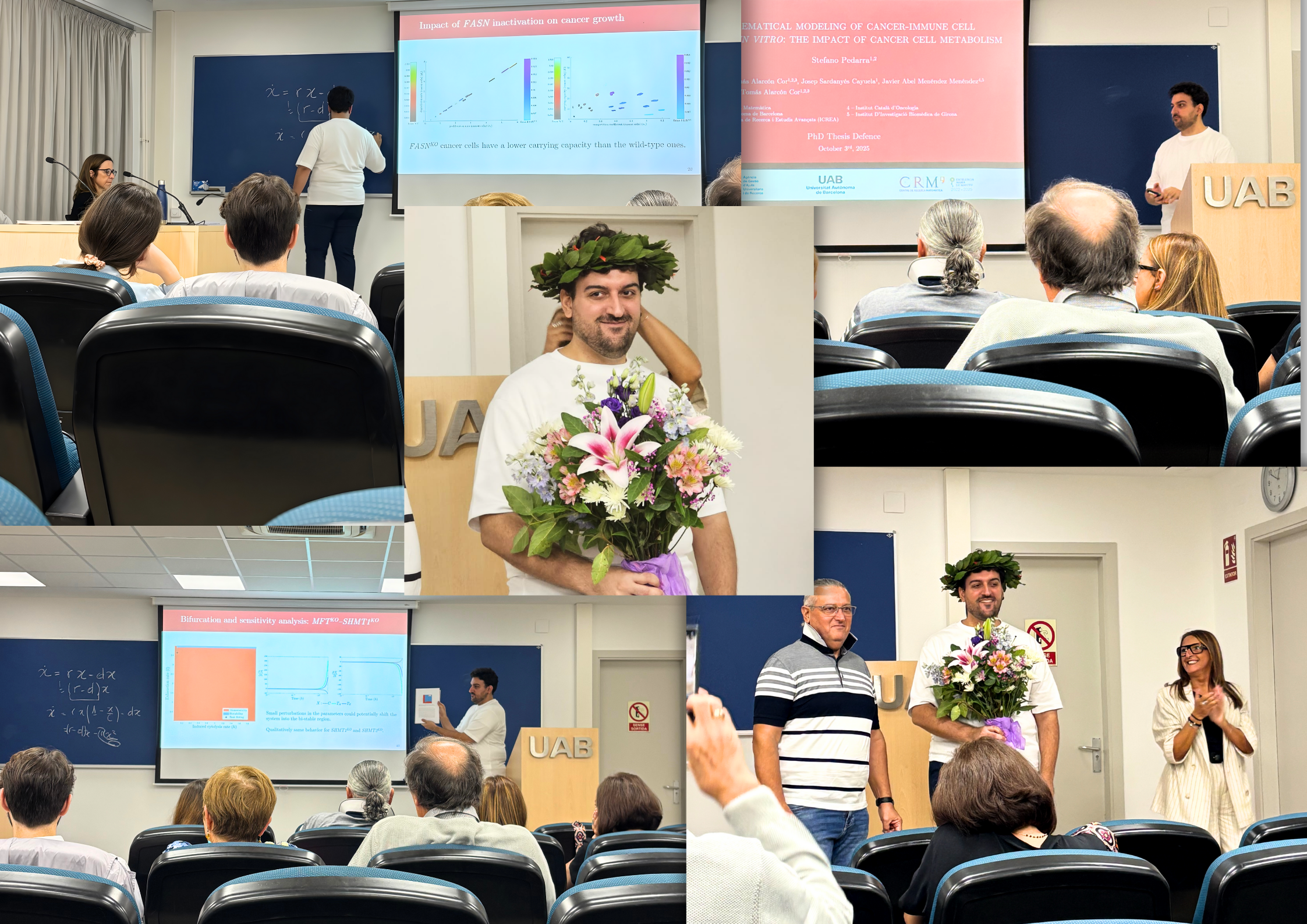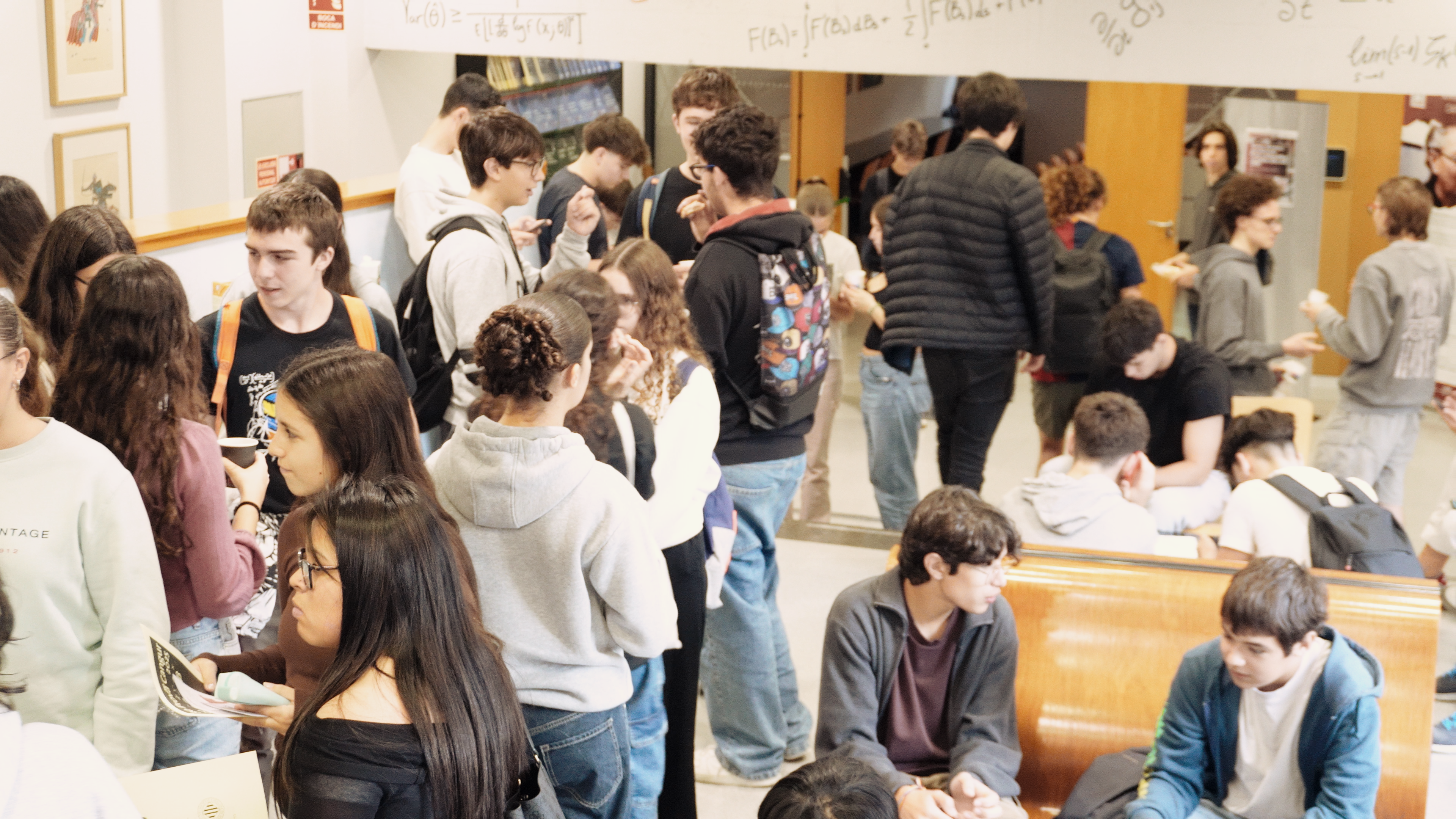From May 26 to May 30, 2025, the Centre de Recerca Matemàtica (CRM) in Bellaterra welcomed more than 80 participants from institutions around the world for the Advanced Course on Modern Aspects of Fourier Analysis. The activity, held at the CRM Auditorium, was one of the central components of the broader Intensive Research Programme (IRP) on Modern Trends in Fourier Analysis, which runs throughout May and June 2025.
Designed as an in-depth training opportunity for doctoral students and early-career researchers, the advanced course combined high-level lectures with interactive sessions, poster presentations, and problem discussions. Over the five-day event, attendees engaged with cutting-edge developments in harmonic analysis, partial differential equations, discrete geometry, and number theory, with a special focus on the many faces of Fourier analysis.
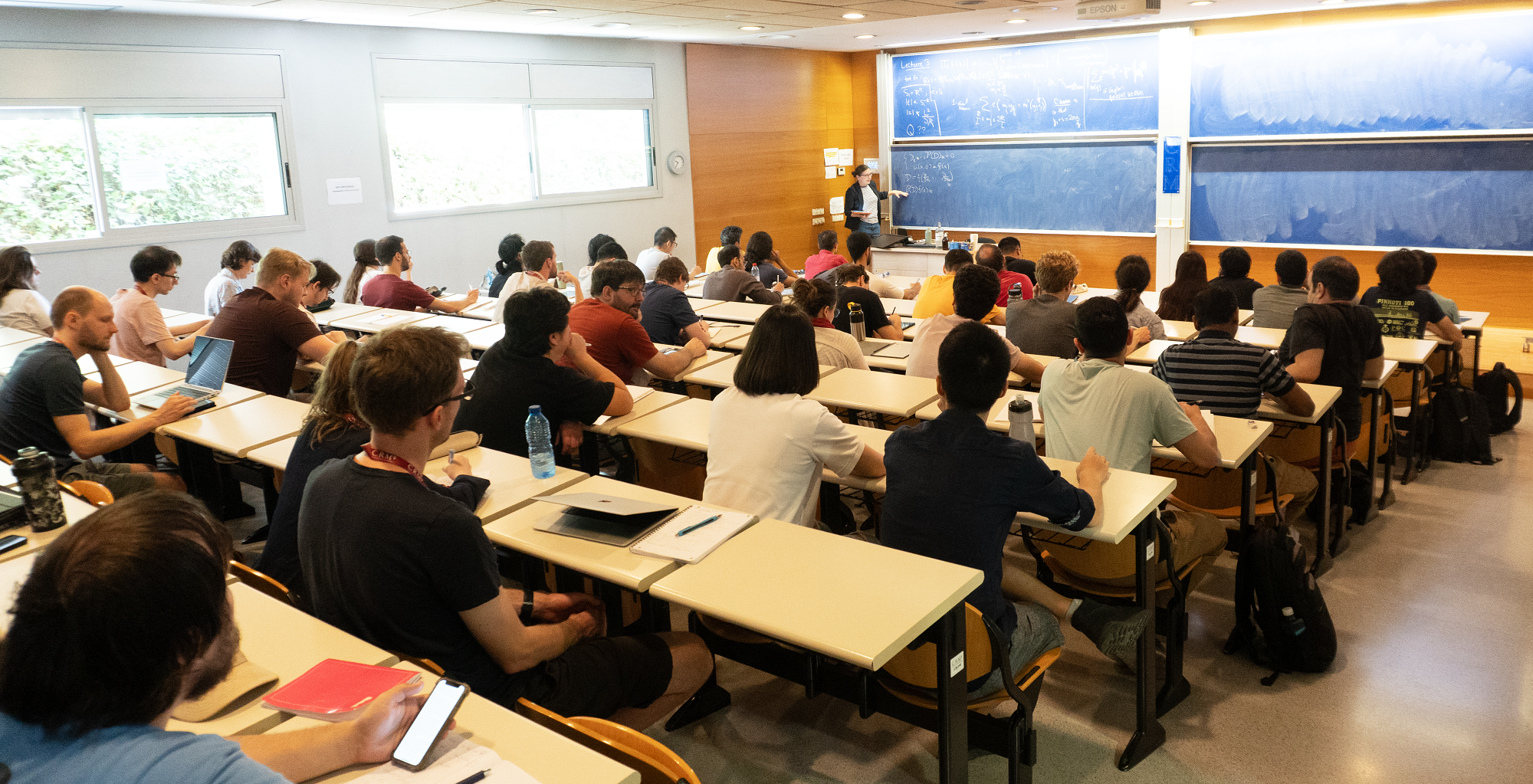
The program featured four advanced courses, each consisting of three 50-minute lectures delivered by internationally recognised experts. Felipe Gonçalves (IMPA, Brazil) led the course Measures with pure point support and spectrum. His lectures explored the surprising and elegant appearance of summation formulas for the Fourier transform across various fields of mathematics, including number theory, discrete geometry, harmonic analysis, and modular forms. Gonçalves presented examples of measures exhibiting pure point support and spectrum, discussed their connections to almost periodicity, and introduced several open conjectures inspired by these structures.
Lillian Pierce (Duke University, United States) presented Counterexamples to pointwise convergence questions in dispersive PDE’s, focusing on a long-standing question originally posed by Lennart Carleson in 1980 regarding the Schrödinger equation. Pierce revisited Bourgain’s groundbreaking counterexample, illustrating how it challenged prevailing expectations, and demonstrated how Gauss sums played a central role. She further outlined general techniques to construct broader classes of counterexamples, shedding light on subtle aspects of pointwise convergence.
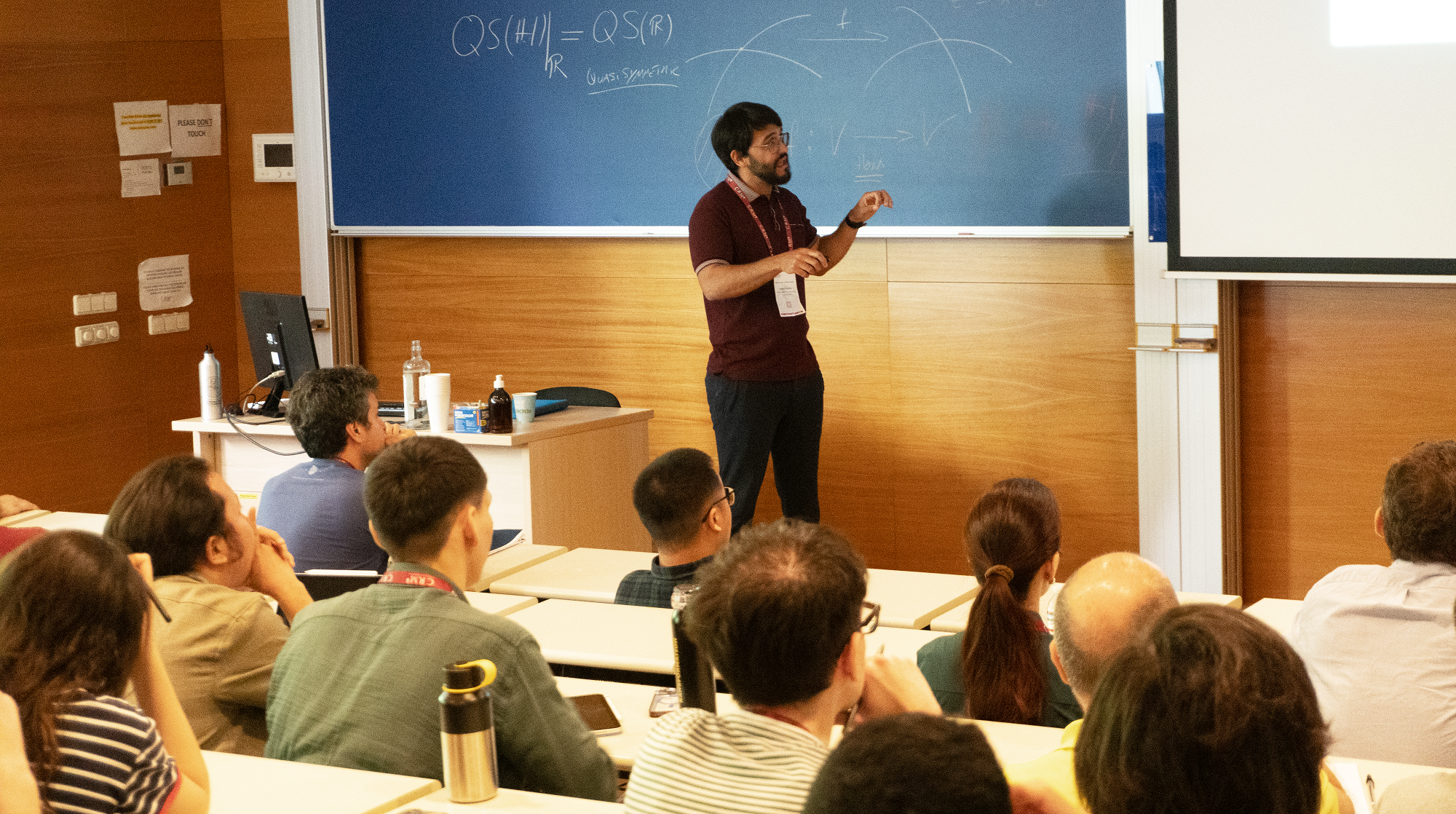
Danylo Radchenko (University of Lille, France) delivered the course Summation formulas, modular forms, and applications, offering a comprehensive tour of classical and modern summation formulas, beginning with the Poisson summation formula. His lectures connected these formulas to modular forms, Dirichlet series, time-frequency analysis, crystallography, coding theory, and number theory, emphasising the wide-ranging applications and mathematical depth of these tools.
Ruixiang Zhang (UC Berkeley, United States) taught Some tools in Fourier Restriction, Kakeya and Weighted Restriction, focusing on three closely related topics at the frontier of harmonic analysis. Zhang provided an introduction to the central questions and recent advances in these areas, while also highlighting connections with fields such as geometric measure theory and dispersive PDEs. He presented several modern techniques that have proved effective in tackling some of the field’s most challenging open problems.
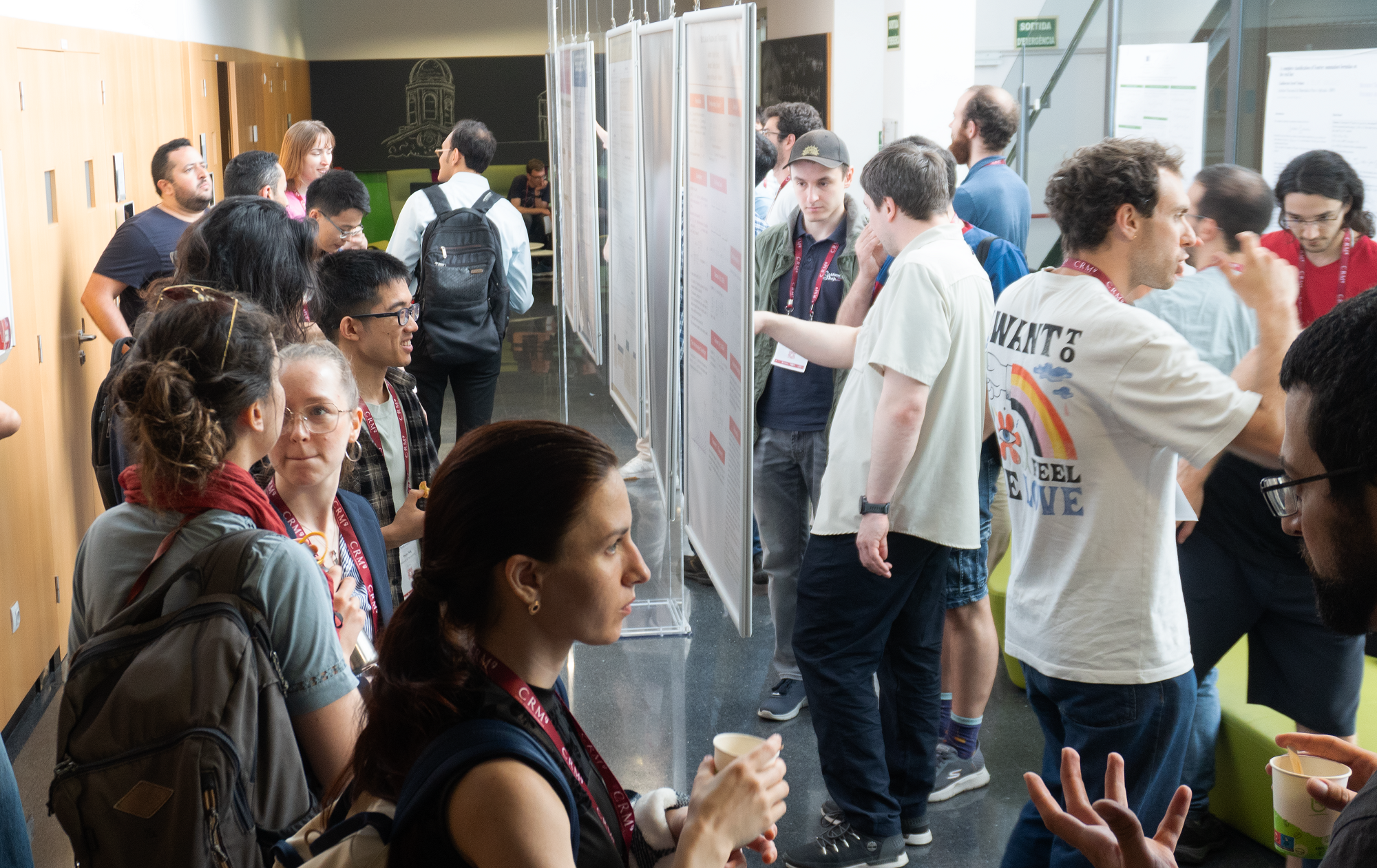
In addition to the main lectures, the course featured afternoon sessions for discussions, poster presentations, and an open problem session, providing an interactive environment for participants to exchange ideas and explore collaborations. The poster session gathered contributions from many of the young researchers attending, offering a wide snapshot of current work in Fourier analysis and its applications.
The scientific and organising committee for the activity included Dmitriy Bilyk (University of Minnesota), Emanuel Carneiro (ICTP), Diogo Oliveira e Silva (Instituto Superior Técnico), Betsy Stovall (University of Wisconsin–Madison), and Sergey Tikhonov (ICREA, Centre de Recerca Matemàtica). The local organizing team included Carlo Bellavita (Universitat de Barcelona), Óscar Domínguez (CUNEF), Egor Kosov (CRM), and Sergey Tikhonov.
The Advanced Course is an integral part of the ongoing IRP, which continues at the CRM with seminars, research sessions, and the upcoming Conference on Modern Trends in Fourier Analysis (June 2–6, 2025). Through this initiative, the CRM continues to serve as an international hub for research in harmonic analysis and its many interconnections across mathematics.
|
|
CRM CommPau Varela
|
Seeing Through Walls: María Ángeles García Ferrero at CRM
From October to November 2025, María Ángeles García Ferrero held the CRM Chair of Excellence, collaborating with Joaquim Ortega-Cerdà on concentration inequalities and teaching a BGSMath course on the topic. Her main research focuses on the Calderón problem,...
Fuel Cells, Filtration, and Decades of Collaboration: A Conversation with Brian Wetton
Brian Wetton, from the University of British Columbia, spent last October at CRM collaborating with Tim Myers on computational models for filtration systems. His career has evolved from pure numerical analysis to applied mathematics with industrial partners, working...
From Barcelona to West Bengal: Chemistry Meets Mathematics to Enhance Water Filter Design
Researchers at the Centre de Recerca Matemàtica, in collaboration with IIT Kharagpur and UPC, have developed a mathematical model that accurately predicts the performance of fluoride-removal water filters made of mineral-rich carbon (MRC) and...
Polytopes, Matroids, and the Friends You Make: Martina Juhnke on Two Months at the CRM
The Centre de Recerca Matemàtica recently hosted a research programme on Combinatorial Geometries and Geometric Combinatorics, focusing on the overlap between polytopes and matroids. Martina Juhnke, a member of the scientific committee, reflects on how this programme...
BAMB! 2025: Participants Return to the CRM for Research Stays
In October 2025, the Centre de Recerca Matemàtica hosted Josefine Meyer (ISTA) and Cate MacColl (University of Queensland) for a month-long research stay following their participation in the BAMB! Summer School. Despite studying vastly different subjects, from...
Connecting Shapes, Patterns, and Ideas: the Closing Conference on Combinatorial Geometries and Geometric Combinatorics
During five days, the CRM hosted the Closing Conference of the MDM Focused Research Programme on Combinatorial Geometries & Geometric Combinatorics. The event featured plenary talks, contributed sessions, and posters on topics from matroids and polytopes to...
Xavier Ros-Oton among the 65 most cited mathematicians in the world
ICREA professor at the Universitat de Barcelona and CRM affiliated researcher Xavier Ros-Oton appears on Clarivate's Highly Cited Researchers 2025 list, which this year reinstates the mathematics category after two years of exclusion.Citations are a strange way to...
New Horizons for H- and Γ-convergence: From Local to Nonlocal (and viceversa)
The researchers Maicol Caponi, Alessandro Carbotti, and Alberto Maione extended the H- and Γ-convergence theories to the setting of nonlocal linear operators and their corresponding energies. The authors were able to overcome the limitations of classical localization...
Diego Vidaurre joins the CRM through the ATRAE talent programme
Diego Vidaurre has joined the Centre de Recerca Matemàtica through the ATRAE programme, bringing his expertise in modelling spontaneous brain activity across multiple data modalities. His work focuses on understanding how the brain’s intrinsic dynamics shape...
El CRM a la Setmana de la Ciència: una ruta entre dones, formes i pensament
El CRM va participar en la 30a edició de la Setmana de la Ciència amb una ruta guiada que va combinar les biografies de dones matemàtiques amb obres d'art del centre, connectant ciència, història i creació artística.El 12 de novembre, el Centre de Recerca Matemàtica...
Stefano Pedarra Defends his PhD Thesis on the Interaction between Tumour Cells and the Immune System
Stefano Pedarra has completed his PhD at the Centre de Recerca Matemàtica with a thesis exploring how tumour-cell metabolism shapes the immune system’s ability to fight cancer. His work brought mathematics and biology into direct conversation, from building models to...
Els estudiants participants a la prova de preselecció de Bojos per les Matemàtiques visiten el CRM
La prova de preselecció de Bojos per les Matemàtiques va reunir estudiants de tot Catalunya a la UAB i al CRM, amb presentacions a càrrec de Montse Alsina, presidenta de la Societat Catalana de Matemàtiques, Núria Fagella, degana de la Facultat de Matemàtiques i...

